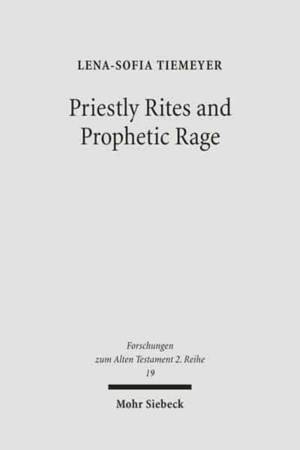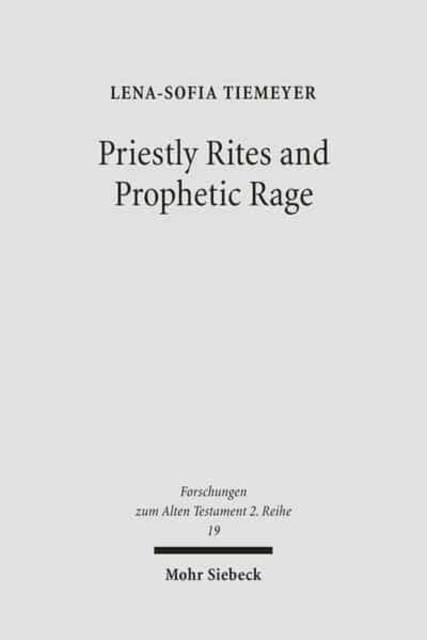
- Afhalen na 1 uur in een winkel met voorraad
- Gratis thuislevering in België vanaf € 30
- Ruim aanbod met 7 miljoen producten
- Afhalen na 1 uur in een winkel met voorraad
- Gratis thuislevering in België vanaf € 30
- Ruim aanbod met 7 miljoen producten
Zoeken
Priestly Rites and Prophetic Rage
Post-Exilic Prophetic Critique of the Priesthood
Lena-Sofia Tiemeyer
€ 83,45
+ 166 punten
Omschrijving
Although Judah's prophets and priests often stood united in their concerns for the cult, many prophetic texts from the 6th and the 5th century BC testify to a major disagreement between them as to how to worship God. On the basis of Isaiah 56-66, Haggai, Zechariah 1-8 and Malachi, Lena-Sofia Tiemeyer analyzes the critique of the priests as found in the prophetic texts from that period. In these texts, the prophets accused the priests of misdemeanours in both the cultic and the social realm. The author further explores how the same prophets envisioned a more righteous priesthood. Much of the post-exilic prophetic literature sought to explain the non-fulfilment of these promises. The author shows that the shared focus of most of these explanations is a culpable priesthood.
Specificaties
Betrokkenen
- Auteur(s):
- Uitgeverij:
Inhoud
- Aantal bladzijden:
- 318
- Taal:
- Engels
- Reeks:
- Reeksnummer:
- nr. 19
Eigenschappen
- Productcode (EAN):
- 9783161490590
- Verschijningsdatum:
- 1/09/2006
- Uitvoering:
- Paperback
- Formaat:
- Trade paperback (VS)
- Afmetingen:
- 153 mm x 229 mm
- Gewicht:
- 502 g

Alleen bij Standaard Boekhandel
+ 166 punten op je klantenkaart van Standaard Boekhandel
Beoordelingen
We publiceren alleen reviews die voldoen aan de voorwaarden voor reviews. Bekijk onze voorwaarden voor reviews.











